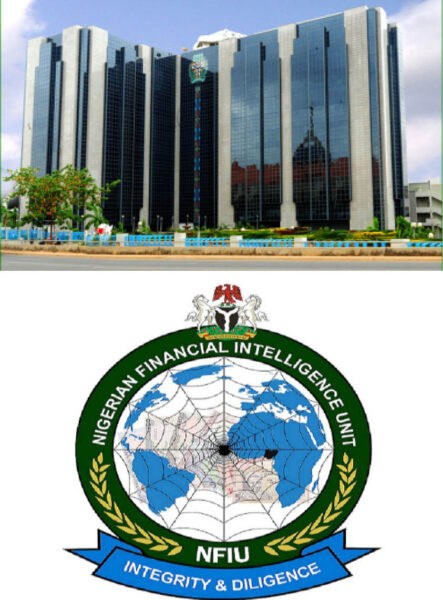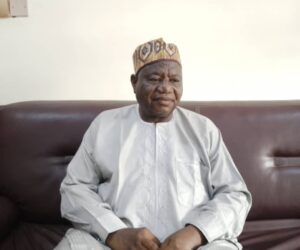Nigeria’s exit from the grey list of the Financial Action Task Force (FATF) will restore investors’ confidence in Nigeria’s financial system and ease cross-border transactions, experts have said.
Daily Trust reports that on Friday, the FATF announced the delisting of Nigeria from its grey list of countries with deficiencies in anti-money laundering and countering financing of terrorism (AML/CFT) frameworks. C
Countries on the list usually face increased scrutiny by the task force.
SPONSOR AD
Reacting to the development, a finance expert and first professor of capital markets, Prof. Uche Uwaleke, stated that the removal of Nigeria from the Financial Action Task Force grey list is a welcome development.
“It is cheering news for the country coming from an international body that was established to coordinate global efforts to combat money laundering, terrorist financing, and proliferation financing.
“The implications for the Nigerian economy can be seen from the following prism: when the FATF grey-lists a country, it means the country has significant deficiencies in its AML/CFT framework and is under enhanced scrutiny which often sends ripples through the global financial system increasing country risk.
Foreign investors are bound to reassess risk exposure and pull back or demand higher risk premium. International banks increase due diligence or even limit correspondent relationships. Multilateral agencies may tighten supervision or delay funding while private compliance systems such as SWIFT automatically flag transactions from that country as higher risk.
As a matter of fact, development Finance Institutions like the IMF, and World Bank use FATF standards as a condition for funding and technical assistance.
So, being taken off the FATF grey list will enhance Nigeria’s access to global finance, trade, and investment. It represents a trust signal for investors and Nigeria’s trading partners,” Prof. Uwaleke explained.
Speaking further, he said, “With enhanced global trust, the country may witness an increase in foreign direct investments which have been in short supply and as country risk is perceived to fall, domestic companies raising debt capital might do this at lower costs. In general, as risk perception lowers, demand for securities might increase, tightening spreads, and possibly reducing yields for government securities and improving valuations for equities. Nigerian Issuers may also find it cheaper to access global debt markets.
“Overall, the removal is positive given Nigeria’s substantial cross-border financial flows. As a member of the regional affiliate body of FATF known as the Inter-Governmental Action Group against money laundering in West Africa (GIABA), its signal value of a strong fundamental governance and AML/CFT systems will help position Nigeria as not only a leading economy in ECOWAS but also in Africa.
“Be that as it may, it must be borne in mind that removal from the grey list is not the end of expected reforms. It only means that the country has substantially addressed the recommended strategic deficiencies. The challenge for Nigeria, going forward, is to sustain them including by effectively implementing all required legal, institutional, and operational reforms to permanently stay out of the FATF grey list,” he added.
GIABA’s earlier prediction
Daily Trust reports that GIABA Director-General, Mr. Edwin Harris, had last month told journalists that Nigeria would be de-listed this month.
He spoke in Guinea Bissau during the Regional Training of Journalists on Investigative Reporting of Economic and Financial Crimes in West Africa.
“So after our mutual evaluation, countries that are seen with strategic deficiencies in their anti-money laundering regime are placed in the pool to go on the grey list.
“It will interest you to know that all of our countries in West Africa, are in the pool to be on the grey list.
“Let me start with Ghana, Nigeria, Burkina Faso, Senegal, Mali, and now Côte d’Ivoire. Ghana left in 2020. Senegal left last year, Mali left. Interestingly and hopefully, next month (October), at the FATF plenary in Paris, Burkina Faso and Nigeria will be out of the grey list, leaving only Cote d’Ivoire.
“So we are hopeful that GIABA will continue to support Cote d’Ivoire. But Cote d’Ivoire authorities need to strengthen themselves and exhibit the strongest political will so that Cote d’Ivoire gets out.”
Understanding AML/CFT framework
In recognition of the negative effects of transnational crimes, especially money laundering and terrorist financing, (+ financing of proliferation of weapons of mass destruction), appropriate Anti-Money Laundering and Combating Financing of Terrorism (AML/CFT) measures have been designed to ensure that economies, especially financial systems are not used to launder the proceeds of crimes and/or to finance terrorist acts.
AML/CFT measures, according to Tim Melaye, GIABA’s Acting Principal Officer, Information and Advocacy, are programs (standards; controls; etc.) designed to fight ML and TF; and to ensure that national economies especially financial systems are not used to launder the proceeds of crimes.
Mutual evaluation process and how countries get grey-listed
FATF member states to which Nigeria belongs as a member of the specialised ECOWAS agency, GIABA, carries out the mutual evaluation process of member countries to ensure maximum compliance with the AML/CFT framework.
Usually, members are rated for technical and effectiveness. Under technical, members are rated based on largely compliant (LC) which means there are only minor shortcomings; partially compliant (PC), there are moderate shortcomings and non-compliant (there are major shortcomings). Then for effectiveness in AML/CFT works, there is a high level of effectiveness, substantial level of effectiveness, moderate level of effectiveness and low level of effectiveness.
Under the technical compliance and rating for effectiveness, Nigeria passed substantially though the results indicate that moderate improvements are still needed while Nigeria is expected to sustain and improve on the AML/CFT measures to remain out of the list.
Explaining the process further, Melaye said, “On each of the grey lists, if you saw what I showed you before on the results, this is what leads to the grey lists. You see, this is compliant C. Non Compliant, NC. So there is a number of NCs you will have.
“For instance, if out of 40, you have 38, this is high effectiveness. Out of 11, if you have 9, you cannot go on the grey list.
“And under effectiveness, there are 11 areas of assessment. If you got zero out of 11, what are you expected to do? You go on the grey list, and what is the grey list, the grey list is to show that you have substantial inefficiencies. So, we now give you what they call recommended actions, those actions are supposed to address those areas of inefficiency and you will work with the country to address those gaps.”
Daily Trust reports that one of the measures put in place by Nigeria is the enforcement of compulsory declaration of foreign currencies above $10,000 by Nigerian travelers at the airport.
The Nigeria Customs Service (NCS) also, in conjunction with the Federal Airports Authority of Nigeria (FAAN) provided currency declaration rooms at the major airports.
Massive win for economy
Also reacting to the development, Olugbenga Agboola, co-founder and Chief Executive Officer (CEO) of Flutterwave, described the delisting as “a massive win” for the Nigerian economy.
Reacting on his X handle, he noted, “This delisting restores confidence, lowers remittance & xborder costs, and unlocks faster, cheaper payments to & from Nigeria.”
The Flutterwave CEO praised the Central Bank and Nigeria’s finance ministry and “everyone who made this happen”.
He added that the delisting sends a strong signal that Nigeria is back on the path of trust, transparency, and financial leadership.
CBN list gains
Meanwhile in a statement at the weekend, the Central Bank of Bank (CBN) disclosed that the nation’s removal from the grey list of the Financial Action Task Force (FATF) would yield tangible benefits for businesses and households.
CBN listed the benefits to include lowering compliance costs, improving access to international finance, and making cross-border transactions faster and more affordable.
The apex bank expressed optimism that these gains would translate into smoother trade settlements, quicker remittance inflows, and even more predictable access to foreign exchange – enhancing livelihoods, supporting enterprise growth, and deepening financial inclusion.
CBN’s Ag. Director, Corporate Communications, Mrs. Hakama Sidi Ali, in the statement noted that the FATF’s decision reinforces the broader restoration of global confidence in Nigeria’s economic management.
“Recent international assessments underscore this momentum, with Moody’s and Fitch upgrading Nigeria’s ratings outlook on the back of stronger external balances, credible policy execution, and renewed monetary-policy credibility.
“Similarly, the IMF’s 2025 Article IV Consultation highlighted improved reserve adequacy, greater transparency, and a reform agenda increasingly aligned with global standards,” she noted.
Commenting on the announcement, CBN Governor, Mr Olayemi Cardoso, said the nation’s priority should be shifted to how to consolidate these gains to reinforce financial stability and strengthen Nigeria’s global credibility.
“The FATF’s decision to remove Nigeria from the grey list is a strong affirmation of our reform trajectory and the growing integrity of our financial system.
“It reflects a clear policy direction and the coordinated efforts of key national institutions working together to deliver sustainable, standards-based reforms.
“Our priority now is to consolidate these gains, ensuring that compliance, innovation, and trust continue to advance hand in hand to reinforce financial stability and strengthen Nigeria’s global credibility,” he said.
In the same vein, the President of the Financial Action Task Force (FATF), Elisa de Anda Madrazo, congratulated Nigeria for being removed from the grey list.
She said Nigeria has demonstrated strong political will and inter-agency collaboration in combating financial crimes over the last two years under President Bola Tinubu, since the country was placed on the grey list.
Speaking at the FATF’s plenary in Paris, France, on Friday, Anda Madrazo also announced the removal of three other African countries —Mozambique, Burkina Faso, and South Africa —from the grey list.
She said: “Nigeria has demonstrated strong political commitment to fight financial crimes. However, let me be clear: it is not only that we have seen a political commitment to exit the grey list… It is because we have seen the change and the political measures put in place.
“In Nigeria, we have seen that political commitment that has translated to the change we have seen on the ground. After sustained efforts of just over two years, Nigeria has demonstrated a stronger capacity – this is fundamental – to investigate and prosecute. This is crucially helping Nigeria to focus resources to fight crimes that harm its community the most, such as drug trafficking and terrorist financing.”
She commended Nigeria for implementing “government-wide policy reforms, stronger inter-agency coordination and cooperation.”
She added: “We have seen an important enhancement in the transparency of the beneficial ownership structure. On the supervisory side, we have seen stronger supervision in the non-financial sectors, particularly in real estate agencies.
Also, the Nigerian Governors Forum in a statement issued on Saturday by the Director of Media and Strategic communications, Yunusa Abdullahi, said the removal of Nigeria from the list was a product of years of thorough investigation and review of Nigeria’s financial systems.
“This remarkable result was predicated on the diplomatic and political efforts of President Bola Ahmed Tinubu, governors of the 36 states of the federation, notable institutions like the Federal Ministry of Finance, Central Bank of Nigeria, Economic and Financial Crimes Commission (EFCC), and the Nigeria Financial Intelligence Unit (NFIU),” the governors said.








